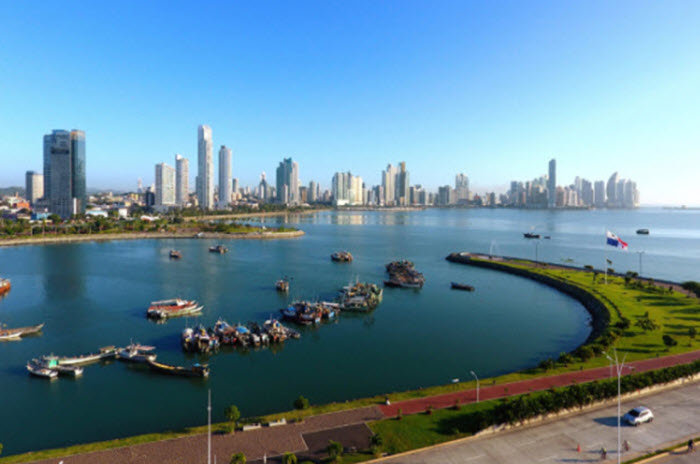Panama this year elected a new President. Is English still on the agenda, as it was with the previous government? And how does the country fare in terms of English speakers generally?
Panama has come a long way economically. The Central American country of little over four million has seen its economy grow at a rate of average annual rate of 5.6% over the last five years – making it one of the fastest growing economies in the world.
It is only natural then for it to be seen as a Nearshoring destination. And top Nearshoring destinations need good English speakers in order to really thrive.
But as an English-speaking nation, how well does it fare? Nearshore Americas dig some digging to find out exactly what the current situation was.
English is highly valued in Panama – and almost all companies are now demanding it
Companies will pay considerably more for English speakers in Panama so it is being pushed as a key skill like never before. With multinationals being told the country is a great spot to be, they are eying up the country and its fast-growing economy.
The country’s government is targeting four priority vocations as being vital for the country’s growth: finance and banking services, hotels and tourism, construction, and information technology workers. And in order to recruit accordingly for these roles, the country’s government knows there needs to be a talent pool that includes English-speakers.
“It’s a very common requirement – more common than ever before – that companies want bilingual personnel,” says Ariel Ayala, Business Development Manager at outsourcing firm ManpowerGroup.
“Panama as a Nearshore destination like never before, with more and more companies coming here – be it call centers or in IT – and they are asking for people to speak English.”
The youth are being targeted
One program the government launched is the The Panama Bilingual Program. The program’s goal was to create 10,000 bilingual teachers and 260,000 bilingual students by 2020 by putting additional lessons taught in English for elementary school students, and after-school English classes for secondary school students. But Panama has recently changed its government with the election this year of new President Laurentino Cortizo so it’s not certain whether that particular program – which was bearing fruit – will continue.
But it is still a top priority for the youth to improve their English. Those at public schools in Panama do not currently leave with a good standard of English, according to Ayala. Universities need to step their game up too and this is something the government has always realized and wants to change.
The similarity between Panamanian English and U.S. English compared to what is seen in other Latin American countries
This is a very strong point. Panama has strong ties with the U.S., historically. Panama’s location and role in global trade make its success vital to U.S. prosperity and national security and the U.S. and Panama have signed a bilateral investment treaty and a Trade Promotion Agreement. Culturally, Panama is also closer to the U.S. than other countries in Latin America and, of course, the national currency is the U.S. dollar. So Panamanians have a lot of exposure to the States.
This has an impact on the way they speak English, too. It is closer culturally to U.S. English and Panamanians, naturally, are more likely to understand certain terms and concepts relevant to the U.S. – something other nations in the region can’t boast. This is in part due to the large number of Americans living there throughout the 20th Century and the building of the Panama Canal. Nearly nearly 100,000 Americans came to live and work in the Canal Zone and the influence is undeniable.
English is expected to improve in the future
Maybe a point applicable to many Latin American countries but it is expected things can only get better from here in terms of the number of English speakers in Panama. From the government initiatives to foreign companies eying up the country, Panamanians – young people especially – are realizing how much further they can go in terms of their careers if they have English under their belt.
“It’s going to increase, definitely,” says Ayala.
“People are realizing that the labor market down here is very competitive – if people have English they can have higher salaries. It’s definitely likely to increase because we have headquarters of a lot of multinational companies, any person who is very serious about their career knows they now need to speak English.”
The government appears committed
As previously mentioned, it isn’t certain whether the new government will continue with the exact English-teaching program of the previous one. But Ayala says this is nothing to worry about. The new government has actually already reportedly been investing in resources to help English teachers – despite being elected just a few months ago.
“Yes, it’s true that new governments here don’t always take action on the previous government’s initiatives but it’s definitely a priority for any government to have a bilingual population,” he tells Nearshore Americas.
“And in Panama especially, because of the companies based here are asking for bilingual people. The government now may apply some changes to the previous program but it will definitely be a priority.”
